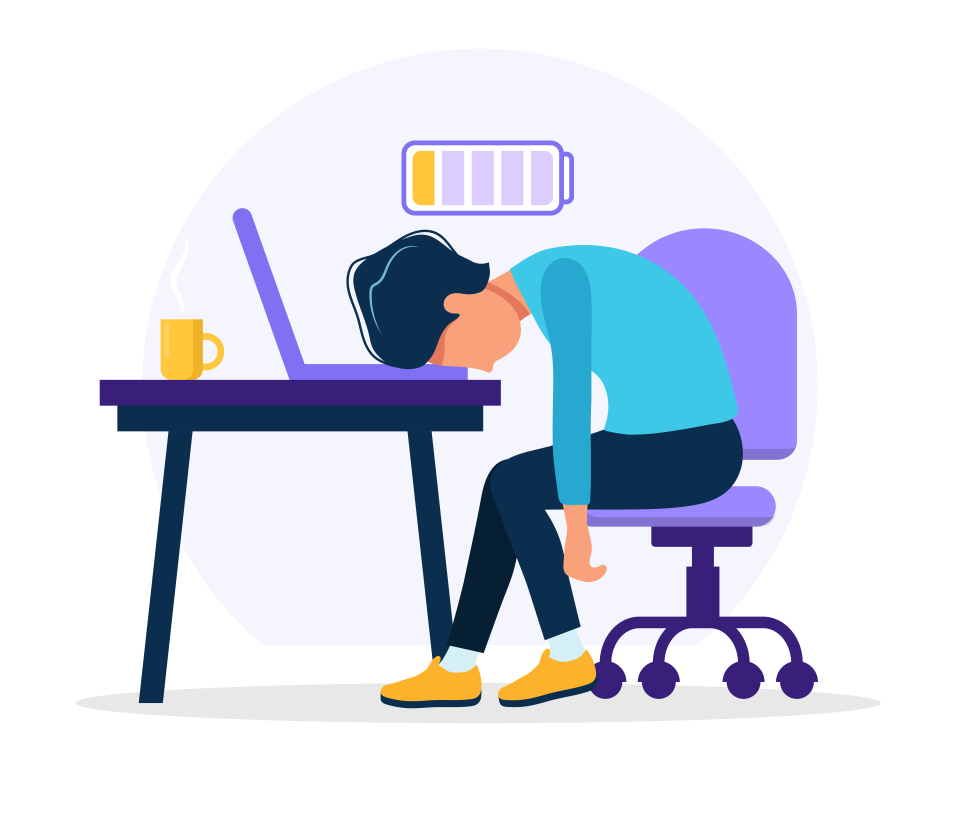Viewpoint: The Burden of Burnout

In 2022, the events industry experienced a significant demand for staffing, prompting companies to seek top talent. However, as we've settled in to 2024, the prevalence of burnout has reached an all-time high.
[On Your Business: Let's Get Together]
A recent U.S. survey revealed that 41% of workers reported feeling burned out, compared to 39% in May 2021. It is noteworthy that those experiencing burnout are more than three times as likely to express intentions of searching for new job opportunities within the next year.
Workplace burnout is linked to chronic stress in the occupational setting. It occurs when job-related stressors surpass the restorative abilities of breaks, weekends, and time off. This state of persistent stress can lead individuals to exhibit physical, mental, and emotional exhaustion because of the pressures they face in their jobs or workplaces.
Symptoms of burnout include exhaustion, cynicism, and inefficacy, which together create a potentially disastrous combination. By acknowledging the symptoms of burnout and its detrimental consequences, people can take steps to prioritize their well-being, establish support systems, and implement ways to manage stress effectively.
Exhaustion: Unfocused and Fatigued
Exhaustion is a big part of burnout, which can manifest as physical, mental, or emotional fatigue. It's important to note that excessive working hours or a high-stress environment are not the sole causes of burnout. It can also result from various factors such as lack of managerial support, unfair treatment, or even feeling unchallenged in one's current role. Even a lack of control over work or scheduling can contribute to feelings of exhaustion.

When you are completely drained and fatigued, you may notice it's difficult to focus or comprehend the bigger picture. Even simple tasks that used to bring joy now seem like a burden, and getting yourself to and from work might become an arduous task.
It's crucial to prioritize self-care and take proactive steps to address and combat exhaustion. Engage in self-care activities that promote relaxation, such as practicing mindfulness, exercising regularly, maintaining a healthy diet, and ensuring sufficient sleep. Taking breaks throughout the day, even if short, can help recharge your energy levels and enhance your mental clarity. Additionally, consider setting boundaries in your personal and professional life to create a healthier work-life balance, allowing yourself time for hobbies, socializing, and other enjoyable activities outside of work.
Cyncism: Danger of Detachment
Cynicism is sometimes overlooked as a symptom of burnout but can be just the tip of the iceberg. You can start to disconnect from your work on a psychological level. Instead of feeling engaged and invested in your assignments, projects, colleagues, and customers, you become detached, negative, and callous.
This feeling of cynicism can arise from factors like work overload, high conflict, unfairness, and exclusion from decision-making processes. You become disconnected from the people you serve to the point where they lose their individuality. Recent research has expanded our understanding of this experience to include negative attitudes toward clients, customers, or your job, plus irritability and withdrawal or detachment from work.
Those experiencing burnout are more than three times as likely to express intentions of searching for new job opportunities within the next year.
Cynicism may manifest as demotivation, pessimism, disengagement, anger, underperformance, feeling stuck, or loss of trust. Workplace cynicism is not a reflection of personal character flaws or being a pessimistic person. It stems from the work environment. Experts view workplace cynicism and depersonalization as defensive coping mechanisms.
Even optimistic individuals can succumb to these protective measures when subjected to prolonged and intense stress. It’s best to work to set clear boundaries between work and personal life to achieve a healthier work-life balance.
[Viewpoint: 5 Ways to Develop Business in the New Year]
Set realistic expectations and communicate your needs to colleagues and supervisors. Seek out support from trusted individuals who can offer perspective and guidance. If needed, consider seeking professional help, such as counseling or therapy. If the workload is overwhelming, discuss workload redistribution or delegation with your supervisor, and seek mediation for conflicts impacting motivation and engagement.
Inefficacy: Poor Productivity
Burnout also encompasses a symptom known as inefficacy, which refers to feelings of incompetence, a lack of achievement, and reduced productivity. When experiencing inefficacy, individuals with burnout feel as though their skills are slipping and worry that they won't be able to succeed in certain situations or accomplish their tasks effectively. This symptom often develops alongside exhaustion and cynicism—because individuals experiencing burnout are lacking the energy and connection to their work necessary to perform at their best.
Feelings of inadequacy can be distressing and further contribute to the overall burnout experience. The perceived inability to meet expectations can erode confidence and motivation, exacerbating feelings of exhaustion and disconnection. It becomes a vicious cycle where the more burned out an individual feels, the harder it becomes to perform at their peak, ultimately reinforcing the feelings of inadequacy.
To address this part of burnout, it is essential to address the underlying causes and work toward restoring a sense of competence and achievement. This starts by recognizing and accepting that inefficacy is a symptom of burnout and not a reflection of personal failure. It is a result of the demanding work environment and the toll it has taken on an individual's energy and motivation.
New data suggests that for almost 70% of people, their manager has more impact on their mental health than their therapist or their doctor—and it’s equal to the impact of their partner. Engaging in self-care practices that replenish energy and foster a sense of accomplishment can be instrumental in combating inefficacy. Setting realistic goals and breaking tasks down into manageable steps can help build confidence and restore productivity.
Seeking support from mentors, colleagues, or supervisors can also provide guidance and encouragement to overcome feelings of incompetence. Additionally, it is important to address the work environment and any factors contributing to burnout. Advocating for realistic workloads, clear expectations, and access to necessary resources can create a more supportive and conducive environment for success.
[Viewpoint: Bringing Women Back to Pro AV]
Burnout is a complex issue that affects individuals in the events industry and beyond. It is crucial to recognize and address these symptoms to promote a healthier work-life balance and prevent further negative consequences. Implementing the above strategies can help combat burnout and restore a sense of fulfillment and purpose. By taking proactive measures and prioritizing well-being, individuals can work toward overcoming burnout and finding joy in their work once again.
